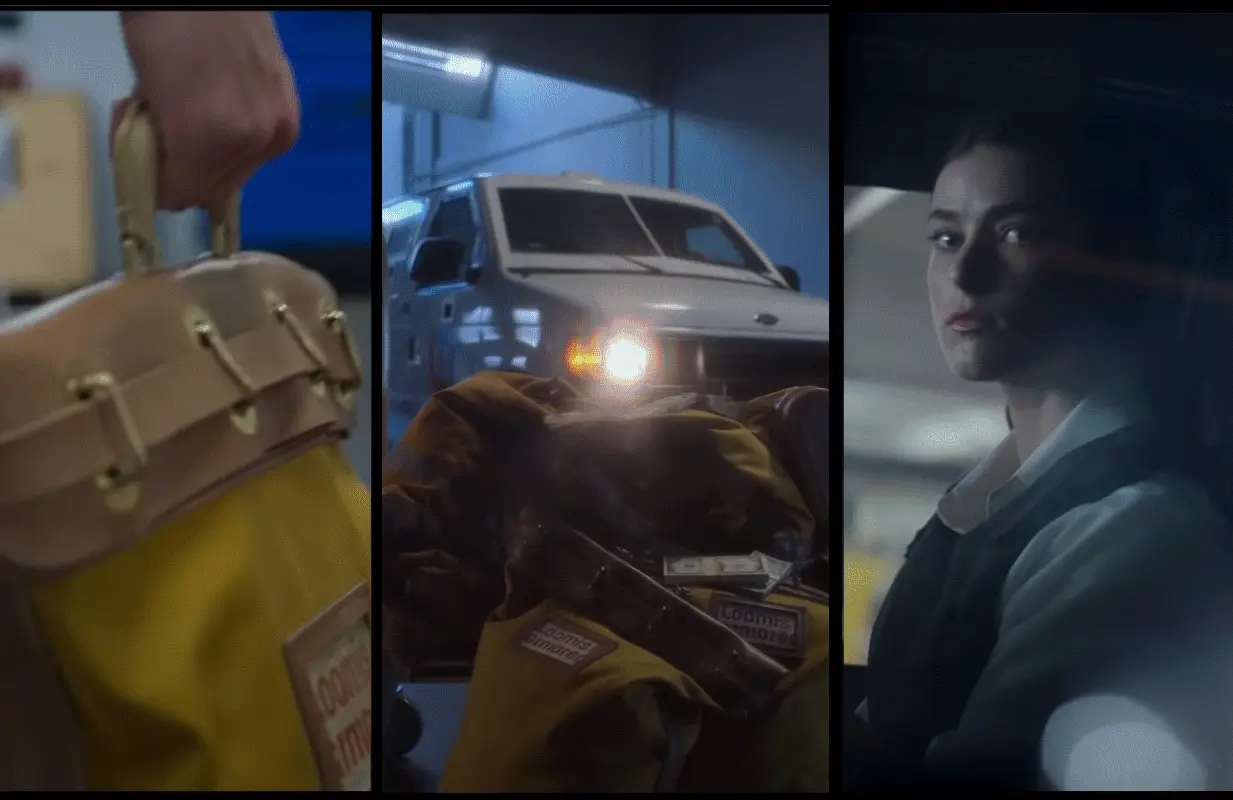Heist on Netflix Is a True-Crime Good Time
-
 (Photo: Netflix)
(Photo: Netflix)The editor-in-chief of the daily newsletter Best Evidence, Sarah D. Bunting knows a thing or two about true crime. Her weekly column here on Primetimer is dedicated to all things true-crime TV.
Heist, the new six-episode series from Netflix recounting three of the biggest American thefts of the past few decades, is perfect for true-crime midsummer marathoning. It's interesting, it's innovative, and it's not infuriating or bleak like a lot of other content in the genre. Need a break from serial killers or wrongful convictions but still want a substantive viewing experience? Here are four reasons Heist is for you.
The format. Heist is a modular series, for lack of a better term: each episode is a manageable and fast-paced 40 to 45 minutes long, while each heist gets two episodes devoted to it. You can watch one at a time, or shuffle the order around depending on whether you're in the mood for an airport job; missing top-shelf bourbon; or a Vegas armored-car robbery. And again, it's not nearly as heavy as a lot of other true crime docuseries; interviewees get emotional, but there are no fatalities or "special victims," so if you end up bingeing it instead of savoring it across a few evenings, you won't feel spiritually nauseated by the end.
The intel. Heist has excellent access to the heisters (and lawmen) at the center of its stories, and the larcenists aren't shy about breaking down exactly how they planned and executed their heists, and then how they successfully eluded law enforcement (for a while, anyway). Likewise, the cops and federal agents who participate aren't shy about how difficult the cases were to crack, or how not-so-secretly impressed they were that a particular caper not only went according to plan, but then went ice-cold on them for years. If you like a ton of process in your true crime, you'll love Heist's blueprints, careful timelines, and repeated references to just how much a bag of money weighs. (It's heavier than you think, according to literally everyone who comments on it for Heist.)
The style. Netflix's PR materials compare Heist to Ocean's Eleven and Catch Me If You Can, but I went into the series skeptical that it would merit those comparisons. I was happy to be proven wrong almost immediately; Heist does have a Soderbergh-like flair, from the split-screens to the occasionally snarky chyrons to judicious soundtrack cues and montaging. Every now and then it's a little too pleased with itself, or loses pace when it can't bear to cut down an interview that, while told by a charismatic co-conspirator, isn't terribly relevant. There's also some nudity that seems gratuitous -- we know what strip clubs are about, so we don't really need more than one re-enactment.
But those re-enactments, lavishly budgeted and directed, bring to mind another true-crime "hybrid" doc I liked a lot and have championed as the future of the format ever since, American Animals. That one's also about a heist, and also interviews the real-life figures while re-enacting the crime with recognizable faces like American Horror Story's Evan Peters. The difference between a property that settles for cheap, out-of-focus recreations and one like Heist is like night and day.
The people. Heist knows how to listen to its subjects. It doesn't glamorize the crooks or the cops, and it doesn't demonize either side, either. It acknowledges (implicitly and explicitly) that we tend to lionize "perfect crimes" and judge criminals for taking shortcuts, and endeavors to present its own heists and the human stories around them without judgment -- allowing viewers to come to their own conclusions about how Heather Tallchief came to see a career criminal like Roberto Solis as a safe place, or how a struggle with infertility led almost directly to an airport raid and three kidnappings of the same guy. Heist is also good at presenting the ripple effects on perpetrators' families, especially teenagers oblivious to their parents' pasts.
And it gets really great sound bites, too. Karls Monzon, who he taught himself to rob the Lufthansa currency bay from watching FBI shows on TV, smiles when he says that "Discovery Channel helped me a lot," while Monzon's henchman Pinky is a bona fide raconteur who needs his own show. A Las Vegas detective admits that he became a cop because "You get to drive fast and mess with people." Tallchief explains without apology that she grew up without luxuries, and "wanted some opulent shit in [her] life"; later, she gets real about lounging on a pile of money in her underwear, confessing that it's uncomfortable.
Heist is informative without feeling like homework, and fun without feeling flip. Throw it in your getaway car and plot your escape.
All six episodes of Heist drop July 14 on Netflix.
Sarah D. Bunting co-founded Television Without Pity, and her work has appeared in Glamour and New York, and on MSNBC, NPR's Monkey See blog, MLB.com, and Yahoo!. Find her at her true-crime newsletter, Best Evidence, and on TV podcasts Extra Hot Great and Again With This.
TOPICS: Heist, Netflix, True Crime